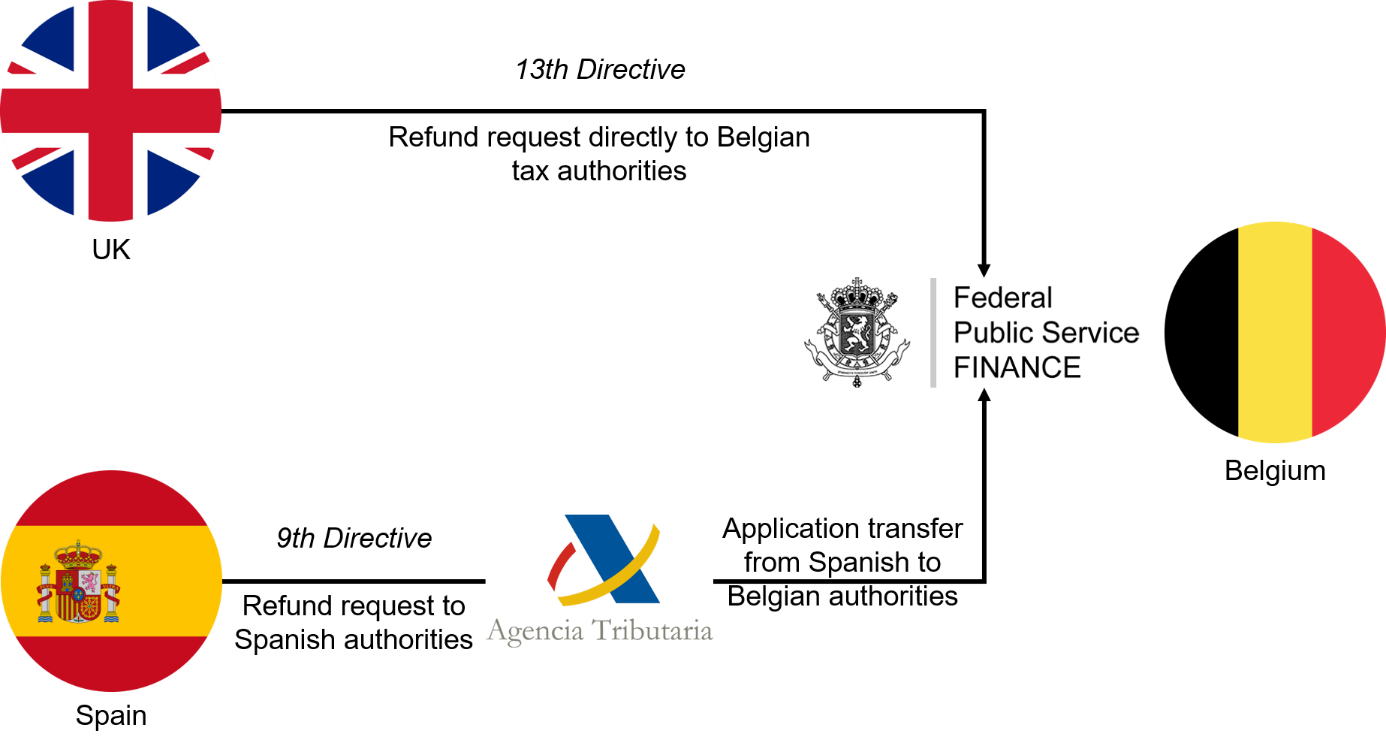The European Union imposes strict VAT compliance requirements on non-EU businesses. In particular, the VAT refund procedure under the 13th Directive for companies from third countries is much more complex than that for EU businesses. Moreover, in order to operate in their territories, selected member states require non-EU companies to appoint fiscal representatives.
Currently, UK taxpayers face issues such as the above because the UK is no longer part of the EU VAT area. In this text we discuss these and similar Brexit VAT implications. Additionally, we suggest an interesting, beneficial solution for import VAT settlement (postponed accounting) and for the requirement for UK companies to submit Intrastat.
This chapter is the last chapter of our SNI Brexit series. In the previous three articles we covered a general overview of Brexit VAT changes (Chapter 1), post-Brexit goods/services VAT treatment (Chapter 2) and the case of Northern Ireland (Chapter 3).
Foreign VAT refund under the 13th Directive
UK companies applying to EU countries for VAT refund need to submit a request to the tax authorities from the member state in which VAT was incurred. This is the so-called 13th Directive procedure. In contrast, EU businesses follow the 9th Directive, which allows for submitting refund applications to the tax authorities in the applicant’s country.

The above is not the only difficulty imposed on non-EU businesses when it comes to foreign VAT refund. Also worth mentioning are reciprocity agreements. To put it simply, a particular EU country may decide to refund VAT to businesses only from selected non-EU countries, which then introduces an equivalent benefit for taxpayers from this EU country.
What’s more, UK taxpayers may expect to be asked to deliver original invoices supporting their refund applications, to answer tax authorities’ questions in the local language and may have other issues. For these reasons many businesses decide not to apply for foreign VAT refund at all, as it often requires hiring a specialized external company, collecting and preparing relevant data and answering tax authorities’ queries.
Tax representative for UK businesses
UK companies that want to operate in the EU need to appoint a tax (fiscal) representative in some member states. The role of the tax representative is to make sure that its client correctly fulfils local VAT obligations, and, in particular, pays VAT on time.
The requirement to appoint a tax representative is demanding and triggers additional cost for a taxpayer. There are many UK businesses operating in the EU. Many of them are already registered for VAT purposes in EU countries. Therefore, selected member states have decided to remove the obligation for UK companies to appoint a fiscal representative. Recent examples are Poland, Italy and Belgium. It may be that more countries will follow this approach. However, at this time there are still countries in which UK taxpayers must have tax representatives. Examples include Austria and Denmark.
Import of goods without cash flow impact
The standard method of settling import VAT requires actual payment of VAT to the relevant authority. Then, once VAT is paid, it may be deducted on a VAT return (assuming it is deductible). Considering the large value often involved in import transactions, this method of import VAT settlement has a significant impact on taxpayer cash flow.
Fortunately, more and more countries, including the UK, are introducing postponed accounting as the method of import VAT treatment. Postponed accounting works like a reverse-charge mechanism. Instead of making payment an importer declares output and input VAT (if deductible) on its VAT return. With this method there is no negative impact on taxpayer cashflow.
In addition to the UK, postponed accounting exists, for example, in Norway, Sweden, Finland, Denmark, Spain and Poland.
Intrastat still required
Intrastat is an EU report indicating physical goods movement between EU member states. However, although the UK is no longer part of the EU, HMRC (UK tax authorities) require UK taxpayers to prepare the arrivals portion of Intrastat. From the UK perspective “arrivals” are defined as goods imports. Reporting of dispatches (exports) is not required. However, Northern Ireland entities must report both arrivals and dispatches as these entities are still treated as EU businesses.





